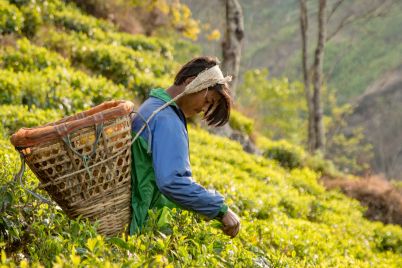The EAT-Lancet Commission 2.0 is launching a new report to update the global community on their healthy diets and sustainable food systems goals.
The first EAT-Lancet Commission report was published in 2019. The EAT-Lancet 2.0 report will launch in 2024 and focus on diverse dietary guidelines, local diets, and food justice. In addition, the report will include 12-month long global consultations for the public and other interested global food systems stakeholders to share their thoughts on a transition to sustainable food systems, and Intergovernmental Panel on Climate Change (IPCC) modeling efforts to evaluate multiple pathways to sustainable food systems.
The second EAT-Lancet Commission brings together 25 scientists from 19 countries and five continents. The Commission includes EAT, a science-based nonprofit in collaboration with the Stockholm Resilience Centre (SRC), the Potsdam Institute for Climate Impact Research (PIK), Harvard University, and One Consultive Group on International Agricultural Research (CGIAR).
The Commission’s research will “take into consideration the role sustainable, nourishing foods play in culture,” Shakuntala Thilsted, EAT-Lancet 2.0 Commission Co-Chair and 2021 World Food Prize Laureate, tells Food Tank. Thilsted adds that the Commission wants to “incorporate and integrate Indigenous and traditional knowledge with up-to-date scientific evidence.”
During the Commission’s press conference at Stockholm+50, Johan Rockström, EAT-Lancet 2.0 Commission Co-Chair and Director of PIK, said the EAT-Lancet 2.0 report will include guidance on investing in regenerative, carbon-sequestering farming systems. Walter Willet, Commission Co-Chair and Professor of Epidemiology and Nutrition at the Harvard T.H. Chan School of Public Health, adds that capturing carbon will be a crucial part of the solution to staying “under 1.5 or two degrees centigrade by the end of the century.”
Policy suggestions within the 2019 report appear to be “a silver bullet,” Matthias Kaiser, Professor Emeritus at the Centre for the Study of Sciences and Humanities at the University of Bergen, Norway, tells Food Tank. He believes that the simplified recommendations laid out in the 2019 report are not globally utilizable. Kaiser also says that the 2019 report did not address global food chains’ uncertainties and complexities. He says the forthcoming report should consider “different food identities, food cultures, and traditions.”
Kaiser notes that reducing red meat consumption or production is possible, but the guidance should address specificity in “different regions and cultures.” In coastal cultures, for example, Kaiser says, a “large quantity of proteins” may come from seafood and less from red meat. Whereas areas that are lower income or that are located far from the sea, “don’t have the supply chains” to support a diet rich in seafood.
Stineke Oenema, Executive Secretary of UN Nutrition, tells Food Tank that “it’s important to look at the context” when making dietary recommendations. In lower-income countries, Oenema notes, it may be beneficial for eaters to consume more animal proteins.
During the EAT-Lancet 2.0 press conference, Willet said that the Commission will be taking a “fresh look” at red meat’s impact on healthy diets, among “many other diet and health relationships.”
The 2019 report also drew skepticism about private food industry involvement in the 2019 EAT-Lancet report. Scientist Nina Teicholz writes, “[EAT’s] massive level of corporate backing raises serious questions about the interests behind this report.” Specifically, EAT’s Food Reform for Sustainability and Health (FReSH) Initiative includes multi-billion-dollar food industry giants like Pepsico, Danone, Syngenta, and Unilever.
The EAT-Lancet 2.0 Commission tells Food Tank, “EAT works with food system actors from all sectors, including business, civil society, governments (local, national, and global). It believes that alignment across actors, reflecting a diversity of perspectives and plausible pathways is critical to support transformation, notably creating a space for dialogue and discussion between divergent voices.”
Kaiser tells Food Tank that power relationships within the food industry may implicitly influence the Commission’s recommendations. “If we see that roughly 70 percent of all the food consumed globally comes from small producers,” Kaiser says, “that is not necessarily [in] the interest of the big corporations that represent the realities in the food system we have.”
The 2019 report was written by experts “from the rich, industrialized countries of the Global North,” Kaiser mentions. Kaiser advocates that the forthcoming report incorporate a more bottom-up approach. This, he says, should include frameworks for “local, regional, and cultural food identities that would improve the sustainability of food consumption” instead of top-down guidelines from wealthy, industrialized nations.
Kaiser also recommends the Commission not solely focus on nutrition science, or areas of health science, but also include social sciences, “like anthropology, sociology, political sciences, that relate to power structures” within the food system. “What they need to do is to have an appeal, rather than a recipe,” Kaiser says, “an appeal to these diversities and suggestions, how a different path to sustainable food can be developed out of the existing traditions, out of the existing socio-economic relationships or power structures.”




